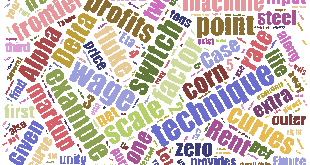A mistaken theory claims prices convey information about relative scarcities. Friedrich Hayek uses an example of tin. According to this theory, a higher wage incentivizes investments in less labor-intensive techniques and to shifting production towards less labor-intensive commodities. Likewise, a lower interest rate incentivizes investments toward more capital-intensive techniques and to shifting production towards more capital-intensive commodities. A number of attempts have been made...
Read More »Ludwig Von Mises Being Wrong On Economic Calculation
I have demonstrated that Von Mises fails to identify problems with central planning. This post merely documents Von Mises being mistaken. He erroneously says that an economic decision cannot be made over alternative methods of producing a given good, without market prices for capital goods and resources. "The director wants to build a house. Now, there are many methods that can be resorted to. Each of them offers, from the point of view of the director, certain advantages and...
Read More »Joan Robinson On Dual Labor Markets
In re-reading Robinson, I often find her succinctly summarizing a theory, often developed later. Here is a quotation from one of my favorite books by her: "The argument is sometimes advanced that evidence shows that, in reasonably prosperous countries, the percentage of unemployment is never seen to vary very much, averaging good times with bad, over the long run ... But even for prosperous countries the evidence is largely an optical illusion. Capitalist industry does not employ the...
Read More »Monopoly Capitalism Is Inefficient
The title claim is not surprising. But it occurs to me that it follows from how I model prices of production, given stable relative profit rates among industries. I am not original with this modeling. My contribution is analying the choice of technique and exploring how this analysis varies with perturbations of relative markups. In the price equations, s1r, s2r, s3r, and so on are the rate of profits in the various industries. I call r the scale factor for the rate of profits. Given the...
Read More »Von Mises Wrong On Economic Calculation (Update)
1.0 Introduction This post is an update, based on suggestions from a user on reddit. I have explained this before. Suppose one insists socialism requires central planning. In his 1920 paper, 'Economic calculation in the socialist commonwealth', Ludwig Von Mises claims that a central planner requires prices for capital goods and unproduced resources to successfully plan an economy. The claim that central planning is impossible without market prices is supposed to be a matter of scientific...
Read More »Von Mises Wrong On Economic Calculation
1.0 Introduction I have explained this before. Suppose one insists socialism requires central planning. In his 1920 paper, 'Economic calculation in the socialist commonwealth', Ludwig Von Mises claims that a central planner requires prices for capital goods and unproduced resources to successfully plan an economy. The claim that central planning is impossible without market prices is supposed to be a matter of scientific principle. Von Mises was mistaken. His error can be demonstrated to...
Read More »Visualizing Variations In The Analysis Of The Choice Of Technique
I have another working paper, Visualizing variations in the analysis of the choice of technique, at the Centro Sraffa. The abstract follows. Abstract: This article describes a diagram that depicts how the analysis of the choice technique varies with perturbations of selected parameters in models of the production of commodities. Fluke switch points partition the graph. Three examples are provided, of circulating capital with markup pricing, of fixed capital with structural economic...
Read More »How Ownership Obtains A Return According To Marx
1. Introduction Elsewhere on the internet, I have been explaining my understanding of some rudiments of the political economy of Karl Marx. Marx's concept of surplus value is a generalization of the concept of profit, in some sense. Surplus value takes in all returns to ownership, whether they be profits, interest, rent, and so on. Surplus value arises from the distinction between the use value and the exchange value of labor power, a peculiar commodity. Because capitalists own the means...
Read More »Is The Labor Theory Of Value Compatible With Automation?
[embedded content]Automation Of Chinese Ports With automation, many processes for production and distribution now execute with minimal human oversight. How can the labor theory of value, as in volume 1 of Capital, be compatible with this? Marx has some comments on this subject in the Grundrisse: The exchange of living labour for objectified labour – i.e. the positing of social labour in the form of the contradiction of capital and wage labour – is the ultimate development of the...
Read More »Adam Smith’s ‘Effectual Demand’
"There is in every society or neighbourhood an ordinary or average rate, both of wages and profit, in every different employment of labour and stock... There is likewise in every society or neighbourhood an ordinary or average rate of rent... These ordinary or average rates may be called the natural rates of wages, profit and rent, at the time and place in which they commonly prevail. When the price of any commodity is neither more nor less than what is sufficient to pay the rent...
Read More » Robert Vienneau: Thoughts Economics
Robert Vienneau: Thoughts Economics

